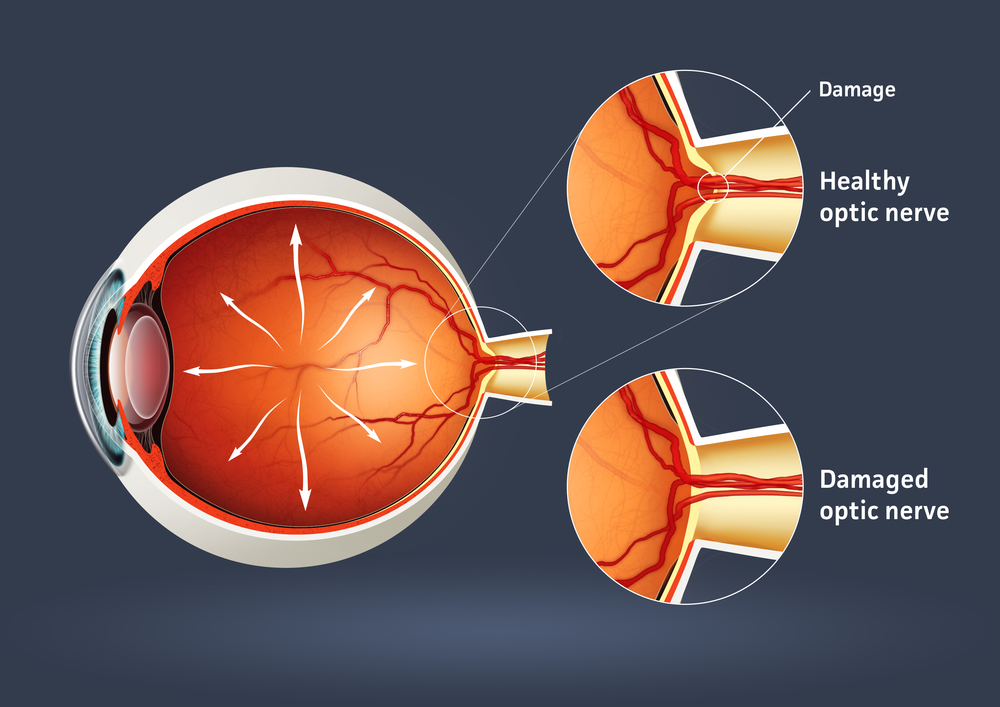National Glaucoma Awareness Month
January marks the time of year when people are working to keep their New Year’s resolutions. Maybe you want to lose weight, save money, eat healthier or quit smoking. One resolution you should consider is visiting your doctor more, specifically your eye doctor. Yearly eye exams can save your sight and even your life as you age. Optometrists and ophthalmologists can evaluate the health of your eyes and also detect chronic and systemic diseases such as glaucoma, diabetes and hypertension.
What is Glaucoma?

Glaucoma, the leading cause of blindness in the United States, is often referred to as the “sneak-thief of sight” because in its early stage, there are no symptoms. Glaucoma is a disease of the optic nerve – the part of the eye that carries images to the brain. If pressure builds up in the eye due to problems with the drainage system of aqueous fluid, damage can occur to the optic nerve causing gradual vision loss or blindness. Glaucoma is not curable, but it is treatable if diagnosed early.
Glaucoma affects more than three million Americans, but over half of them don’t even know that they have it, according to Prevent Blindness America. This is one of the many reasons that yearly eye exams are important in preserving vision.
Risk Factors
Some of the most important risk factors for glaucoma include:
- Age
- Elevated eye pressure
- Family history of glaucoma
- African or Hispanic ancestry
- Farsightedness or nearsightedness
- Past eye injuries
- Thinner central corneal thickness
- Systemic health problems, including diabetes, migraine headaches and poor circulation
- Pre-existing thinning of the optic nerve
One of our glaucoma specialists at The Eye Institute of Utah, Dr. Kristin Bretz or Dr. Zachary Zavodni, can evaluate all of these factors and decide whether or not you need treatment for glaucoma, or whether you should be monitored closely as a potential glaucoma patient. If you are identified as a high-risk potential glaucoma patient, then you will need to have regular examinations to monitor and detect early signs of damage to the optic nerve.
In order to detect glaucoma early, it’s important to schedule regular yearly exams with your optometrist or ophthalmologist. At The Eye Institute of Utah, we also offer free glaucoma screenings, so feel free to give us a call at 801-266-2283 or come visit us today!
